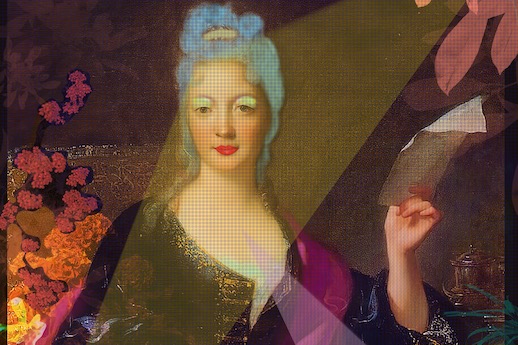Sonus feminæ #2: LADY LUMINARIES
6.30 pm concert introduction
7.15 pm concert
Early Music | Famous Composer-Performers and Luminaries

In the mid-16th century, the doors to the cultural scene were largely open to women in Venice, where they joined men in literary and musical improvisation in the salons. The atmosphere of the venetian salon was completely different from that of the court, and allowed the development of female strengths, which were no different from those of men, and an appreciation of them emerged. Naples also produced numerous female singers known for their simple and poignant performance style, and eventually inspired Giulio Caccini, Francesca Caccini's father, to develop a new style of singing, the stile recitativo and monody.
Francesca also drew on his work. She published numerous sacred and secular music, and she was the first composer to write an opera: La liberazione di Ruggiero Dall'Isola d'Alcina. She was a celebrity at the Medici court and received one of the highest paid jobs there. Her works performed there are from her Il Libro Primo delle Musiche a uno e due Voci, published in 1618. Particularly charming are her canzonettas, originally intended to be accompanied on guitar. Since Francesca played the guitar herself, she probably accompanied herself. She also composed several arias sopra la Romanesca - a Renaissance ostinato bass that did not lose popularity in the 17th century.
In contrast to Francesca Caccini, the most famous composer and singer of the Baroque, the Venetian Barbara Strozzi (1619 - 1677), rejects opera. She is an expert of love song; becomes the most important composer of Italian cantatas of the 17th century. Daughter of the poet Giulio Strozzi, she had access to Venetian intellectuals and artists, which enabled her to study with the composer Francesco Cavalli and to have a busy concert career. Her life's work includes mainly chamber music, including arias, madrigals in small ensembles.
Another "brilliant singer, pianist and composer" according to the poet Fulvio Test was the singer and composer Francesca Campana (ca. 1615-1665), probably from Rome.
Two famous female instrumentalists of the Baroque period are Antwerp-born Leonora Duarte (1610- ca. 1678) and Parisian Elizabeth-Claude Jacquet de la Guerre (1665-1729). The first was born into a prominent family of tradesmen and art collectors (friends of Ruckers, Vermeer, and possibly Rubens) and received an excellent musical education, which included lessons on the viola da gamba, harpsichord, and lute, as well as composition. The musical evenings Duarte spent at home with her siblings quickly became well-known venues for traveling diplomats and literary figures, including Constantijn Huygens, Dutch poet Anna Roemers Visscher, composer Nicholas Lanier, and singer Anne de la Barre. As a Jew and a woman, Duarte received no commissions from the church or court, and composed chamber music for private use. The surviving symphonies are a unique testimony to this.
French harpsichord virtuoso Elizabeth-Claude Jacquet de la Guerre (1665-1729) began her career as a wunderkind, trained by her father Claude Jacquet, a renowned organ and harpsichord teacher. At the age of five, her harpsichord playing caught the attention of Louis XIV, who honored her with his compliments and told her to cultivate the wonderful talent nature had given her. Celebrated as a "wonder of our country," she soon became famous in other countries as well. She was employed as court composer at Versailles.
program:
works by Francesca Caccini, Barbara Strozzi, Francesca Campana, Leonora Duarte, Élisabeth-Claude Jacquet de la Guerre
The wonderful musicologist Susanne Wosnitzka could be won for SONUS FEMINÆ, who will introduce the concerts and find answers to exciting questions - like under which life circumstances the female composers were allowed to compose, which acknowledgement and resistance they experienced.
with:
Amy Green, soprano (Cité des Dames)
Miako Klein, recorder and baroque violin (Cité des Dames)
Jia Lim, harpsichord (Cité des Dames)
Maria Elena Medina, soprano and viola da gamba
Prisca Stalmarski, baroque violin
Magnus Andersson, lute and theorbo
Tickets: 18€, reduced 12€
online via eventim or at the box office. Free choice of seats.
(Tickets available at all eventim network sales points / Order hotline: + 49 (0) 1806-570070 (0.20 €/call incl. VAT from landlines, max. 0.60 €/call incl. VAT from mobile networks) can be reached Monday to Friday from 9 a.m. to 5 p.m.).
Further information on ticket rates can be found here: Service/Tickets
Cité des Dames - L'Eccellenza delle Donne TRAILER from Miako on Vimeo.
more information at: https://www.sonusfeminae.de/
organizer: Cité des Dames / Miako Klein in Kooperation mit dem Kultur Büro Elisabeth.
With the kind support of:

Foto: Website Startbild © Sonus feminae





